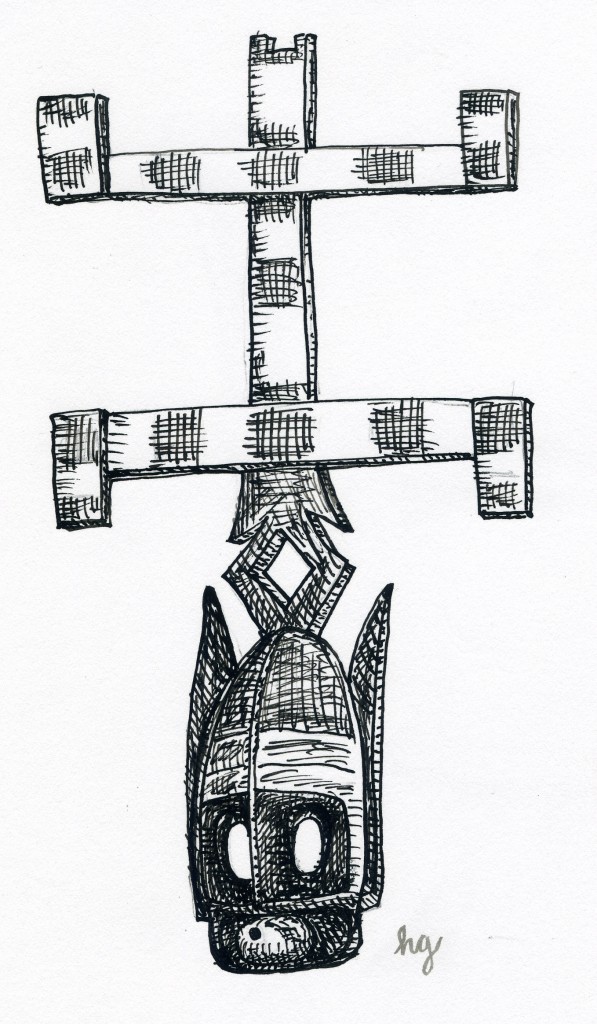Suddenly, Kurtz appears on a makeshift stretcher accompanied by pilgrims and surrounded by natives. Mention of Marlow is made to him, to which he replies that he is glad to see him. He then boards the steamship while Marlow is noticing an extravagantly-ornamented native woman outside the ship, whom he is informed by the Russian trader is Kurtz's mistress. The trader remarks that her influence over Kurtz has caused him much trouble, and even says he would have probably be willing to shoot her had she come on board. In the meantime, Kurtz is yelling and criticizing the steamboat crew for coming solely for ivory instead of assisting him, which of course seems ironic.
Marlow is told by the steamboat crew manager that Kurtz's unsound and unorthodox methods will be reported to the Company, to which Marlow replies that Kurtz is undeserving and is a "remarkable man." From that point onwards, Marlow is considered in the same light as Kurtz, being alienated from the Company's more "civilized" agenda. The Russian also informs him that Kurtz had organized the attack on their steamer in hopes that they would assume he was dead and abort the mission. Marlow is asked to keep Kurtz's reputation in high esteem, but Marlow replies that he has overheard plans to hang the Russian. After hearing this, the trader leaves the site by canoe. It is now obvious that Kurtz was symbolic of the many faces of imperialistic colonialism, being a scapegoat for the manager and pilgrims, a traitor (having had an African mistress), a destroyer, and even somehow a wise man all along.
"She [Kurtz's mistress] must have had the value of several elephant tusks upon her. She was savage and superb, wild-eyed and magnificent; there was something ominous and stately in her deliberate progress. And in the hush that had fallen suddenly upon the whole sorrowful land, the immense wilderness, the colossal body of the fecund and mysterious life seemed to look at her, pensive, as though it had been looking at the image of its own tenebrous and passionate soul." (Conrad 106)
 African headdress
African headdress


